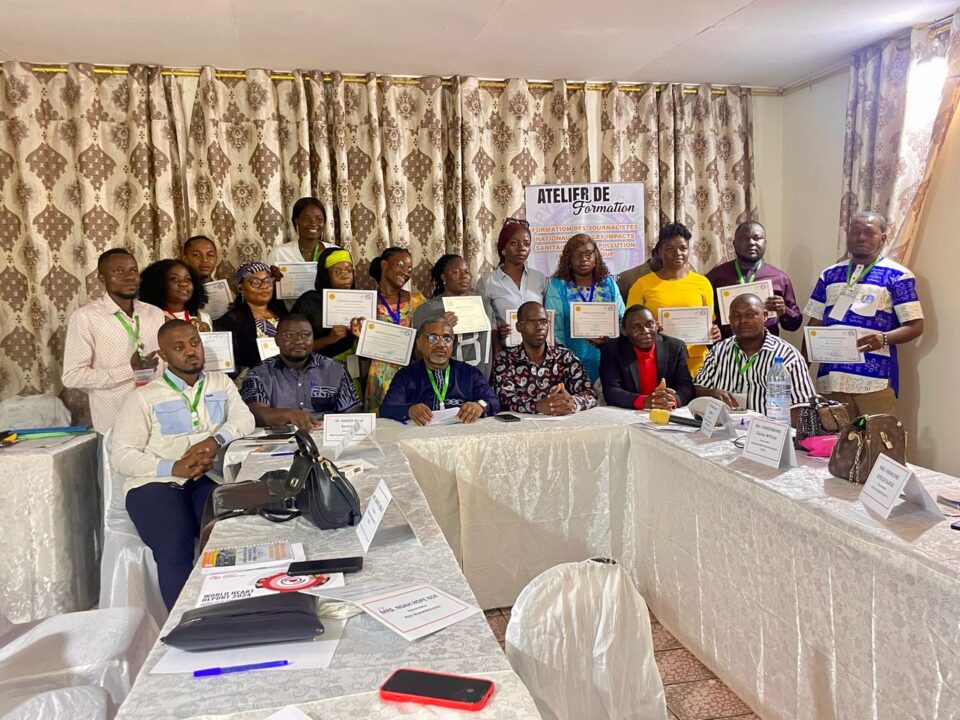From February 17 to 19, 2025, a national seminar was held at the Atlantic Hotel in Kribi, bringing together journalists, health experts, representatives from ministries, and civil society to strengthen media capacity on air pollution and its health consequences. This workshop marks a turning point in communication about a major public health issue in Cameroon.
Air pollution is a silent killer. In 2021, it was responsible for nearly 10% of deaths in Cameroon, with a large portion of the population living in areas exposed to levels of fine particles (PM2.5) above the limits recommended by the WHO. In the face of this threat, the training workshop held in Kribi is a crucial action to address the lack of information and media involvement in the fight against this health issue.
Organized by Clean Air Fund and implemented by the APYLAV (Association for the Promotion of Youth Leadership, Advocacy, and Volunteerism Cameroon), in partnership with several international and governmental institutions, the seminar gathered 23 participants: 15 journalists from all ten regions of Cameroon, health experts, and representatives from the Ministries of Public Health, Transport, and Communication. Together, they addressed the central theme of the training: « Strengthening journalists’ capacity to accelerate awareness of the impacts of air pollution on health. »
From the first day, the discussions highlighted the urgency of taking action against the dramatic consequences of air pollution, particularly on cardiovascular and respiratory health among the most vulnerable populations: children, the elderly, and those with chronic illnesses. Dr. Fouedjio Etienne of the Cœur et Vie Foundation presented the devastating effects of air pollution on the heart, while Professor Pefura Eric from the University of Yaoundé I detailed the respiratory damage caused by this invisible but omnipresent pollution.
One of the seminar’s key moments was the intervention of Dr. Achiri Elvis Ndikum, President of APYLAV, who emphasized the need for joint action between journalists and health experts to pressure the authorities and encourage them to adopt policies protecting air quality. The creation of a national communication strategy for clean air was another key step, aiming to raise awareness among policymakers and the public about the importance of a healthy environment for public health.
The discussions also explored concrete solutions to improve the situation, such as promoting renewable energy, eco-friendly public transportation, and implementing public policies to better manage waste and reduce pollution. However, a stark realization emerged: media coverage remains insufficient, and journalists’ involvement in communicating about air pollution is still too low. Therefore, the seminar provided participants with training in writing impactful and informative articles on air pollution, while developing communication strategies to raise public awareness.
At the end of the training, the participants worked on creating a national communication strategy on air pollution and health, with the goal of generating increased media coverage of this critical issue. One of the key actions arising from this initiative will be writing articles and producing reports on air quality, which will be published before the 2nd World Health Organization Conference on Air Pollution and Health, scheduled for March 2025.
The expected outcomes of this training are numerous: strengthening media coverage of the health effects of air pollution, developing a national communication strategy, and increasing awareness through the media. If the project succeeds in changing the way air pollution is addressed in Cameroonian media, it could serve as a model for other countries in the region.
Thus, beyond the training sessions and conferences, this seminar laid the first foundations of a national mobilization that must intensify in the face of one of the most urgent public health threats in Cameroon. The fight against air pollution is just beginning, and journalists, now better trained and equipped, will play a central role in this crucial struggle for public health.
Rodrigue Florent NGANI

